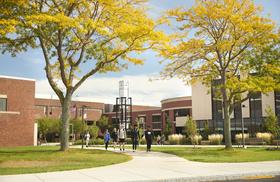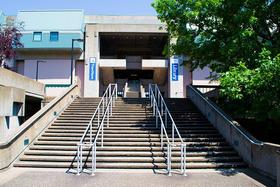While four-year colleges and universities have traditionally been the path to the future for many high school graduates, business leaders and lawmakers are presenting a new option for today’s youth. Community colleges are becoming more than an alternative means of education; they are quickly advancing as a core element in a competitive 21st century workforce. As the need for highly skilled employees continues to increase, many are beginning to recognize the fact that community colleges may be the solution that meets that need best.
The President’s Take on Community Colleges
In 2010, President Obama stated that jobs requiring an associate degree were expected to grow at twice the rate of positions that could be obtained without any college experience in the coming years. The President also said that if community colleges could not train a sufficient number of workers to fill open positions, the jobs would have to be filled by outsourcing, according to a report at the White House website. To meet the needs of the workforce and prevent outsourcing, the President set an ambitious goal to graduate an additional five million students from community colleges by 2020.
Today, U.S. News and World Report states that the need for community college graduates continues. According to the report, around 600,000 jobs remain unfilled in the United States because companies cannot find skilled workers to hire. Jay Timmons, president and CEO of the National Association of Manufacturers, stated in written testimony to the House Committee on Education and the Workforce that many of those open positions are currently in the manufacturing industry.
Shifting Trends
Community college does appear to be the training ground of the future, starting now. Education News reported recently on the trend in which adults in the workforce are heading back to community college for additional training or retraining in a new field. In addition, students who have earned a four year degree are heading to community college for specialized training that can land them employment, after discovering their four-year program did not provide the specific job training they needed.
Unfortunately, many of those students are also carrying a significant amount of debt from their first college endeavor. Average debt from a four-year degree program averaged around $24,000 in 2012, according to statistics at American Student Assistance. If that degree does not lead to a good job right out of school, students may find themselves in financial hot water early on in their adult lives.
On the flip side, U.S. News and World Report cites many high paying jobs that can be landed with just a two-year degree. For example, an electrical technician may earn an average annual salary of around $56,000 with an associate degree. A nuclear technician can earn even more – around $68,000 – upon completion of a two-year degree program in the field. When one considers that the cost of community college tuition averages around $2,000 per year, the value of the two-year degree cannot be beat.
Getting a Head Start in Chicago
Cities like Chicago are providing stellar examples of how to prepare students early for in-demand jobs. U.S. News and World Report lists five high schools in the Windy City that are currently offering career training tracks. The schools, including Chicago Vocational Career Academy, Corliss High School, Michele Clark High School, Goode Acad High School and Lake View High School, are providing students with vocational programs that align with large employers in the area.
Students earn a high school diploma, while simultaneously earning credits toward technical certification or an associate degree from City Colleges of Chicago. Companies participating in the program include Motorola, IBM and Verizon. These companies may provide internships and job interviews for students graduating from the program. IBM has also created a blueprint other industries can use if they want to implement a similar program to attract new workers from city schools.
“They have a shortage of workers. We have a student population ready to fill those jobs if they have the educational opportunities to do it,” Chicago Mayor Rahm Emanuel was reported saying at Education News.
Timmon agrees that targeted training is the way to bring up a new generation of skilled workers. He stressed in his own testimony that manufacturers should develop their own systems of certification tests. This would allow local schools to more readily customize training and education program to meet the needs of the immediate workforce.
Legitimizing Community College Education
One of the biggest hurdles faced by programs like the one in Chicago is overcoming the stigma of a community college education. In the past, two-year schools were often seen as the fallback plan for students who didn’t have the grades or money to pursue a bachelor degree from a four-year college or university. Today, these schools have become viable, lucrative training grounds in their own right, but it takes time to shift the school of public opinion in favor of community colleges.
“Skill certifications can and should be part of a traditional education system, but a wall has been built between education and job training on both sides of that divide,” Timmons told U.S. News and World Report.
Legitimizing community college education began in the White House, where the current administration has placed a focus on two-year degrees as a means of building a competitive 21st century workforce. As community colleges work toward meeting the needs of employers and raising the bar on their education quality and completion rates, and students find a viable path toward professional success, that stigma may become nothing more than a memory.















